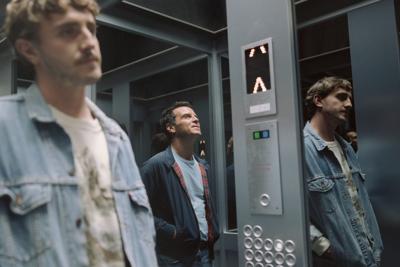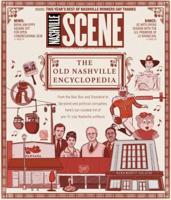When a writer is blocked, it is very easy to slip into a flight of fancy, or dally in “if only” scenarios. At the outset of All of Us Strangers, Adam (Andrew Scott) is blocked — to the point that a looming blank page on his computer sends him back to his childhood home. That’s where he finds his parents, still the same age as when they died long ago, when Adam was 12. He is able to speak with them, and interact with them, despite the fact that he is now older than they are. And that’s a very promising and fraught place to be. The questions you would ask the beloved dead. The statements you would offer to them. The chance to fix it all.
When Adam begins to interact with his parents (Claire Foy and Jamie Bell, who are awesome), we’re in an experimental-theater phase of the experience of this film. But this is an experimental theater focused on kindness and support; this is blanket therapy taking aim at primal trauma. And because life is rarely so kind as to compartmentalize what we’re going through, there’s also the question of Harry (Paul Mescal). One of the few people living in the same sleek apartment complex as Adam, he’s got rescued-golden-retriever energy as well as an aching sense of loneliness, and he’s going to become a voice of reason, a shoulder to lean on, and a sensual amusement park ride for Adam while he’s determining who he is and where he’s going.
There’s something that feels really apt in Andrew Scott starring in this film. A profoundly gay performer who captivated the imaginations of the world as Fleabag’s “Hot Priest,” he personifies liminal space. And here, he’s the voice of an entire generation of gay men who came of age during the plague and have seen the rise of PrEP and marriage equality. So he’s seen some things. And if you didn’t see last year’s Aftersun (the best film of 2022), you may know Mescal only from his penchant for miniscule inseams and the social media exegeses of his bar and jogging habits. If you did see that film, you know he’s great at drawing ambient empathy from the room and incarnating a wounded sensuality that’s like 70 percent capybara and 30 percent Mark Ruffalo in In the Cut. (If you like sleazy ’staches, this is the movie for you.) And what Gen-Xer could resist a millennial who wants to learn about the Pet Shop Boys and Frankie Goes to Hollywood? (The film’s twin musical theses are the former’s “I Want a Dog” and the latter’s “The Power of Love.”)
Writer-director Andrew Haigh’s 2011 film Weekend was the kind of slice-of-life, unassuming masterpiece that hangs out in the subconscious long after you see it. And it sets the template for the kind of voice he’s been for the queer community, where each scenario depends on (and teaches the ideal course of action for) speaking honestly and directly, forgoing the bondage of default politeness — motivating the need to be real and conscious of one’s own needs.
This film speaks to the part of me that wants something gay beyond this life. Something eternal and cosmic and more than. Urbania did this to a certain extent back in 2000, creating not so much an elastic reality but more a porous one — where a musical set piece or fleshy interlude can unfold without breaking reality, and boring ways of living are happily pushed aside. All of Us Strangers is about a lot of things: the vast difference in life for gay men of a certain age given some major scientific and medical discoveries and breakthroughs; how even when we have the chance to clear the air with those we love, it’s never as easy or clear as we wish it would be; how regret can be like a form of telekinesis, putting one foot in front of the other and maintaining the illusion of participation in the world around us.
There are lots of takes on this film by critics I respect who feel that the whole thing is an exercise wherein a blocked writer engineers a doubly elaborate scenario to work through their personal shit before getting back to “real” (read: commissioned by straight society) work. But I find this approach insulting, because the subtext of that approach is that queer issues don’t occur unless placed in the path of normies by queer creatives — like this story is a side quest for the adventurous heterosexual viewer. If this film about being able to make peace with our parents, or about reaching out to the emotionally unmoored, can’t get through to you, then maybe it’s time to talk to your primary care physician about getting some meds that can help manufacture some empathy.
This film’s ending should be a brick wall of inescapable sadness. It’s certainly having an additional discussion with gay viewers, dealing with the legacy of the past 40-plus years of history, and imparting a lesson that, just judging from the writing that’s out there by (mostly) straight writers, is going over the heads of mainstream viewers. That’s not a mark against audiences, or their comprehension. But there’s a cosmic urgency — an empathetic imperative — to All of Us Strangers, that can take the ongoing tragedy of life and make it into something expansive and triumphant.





